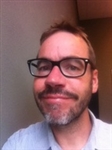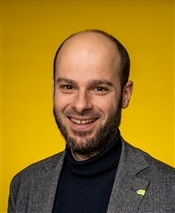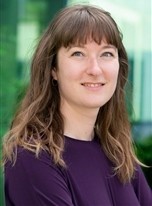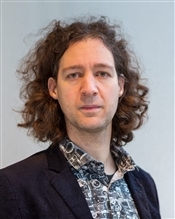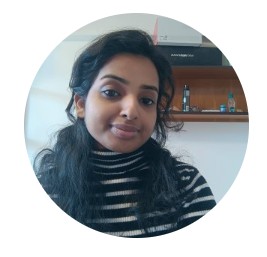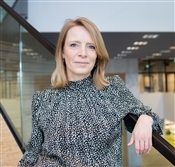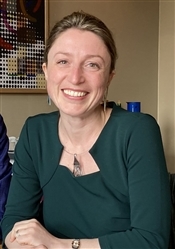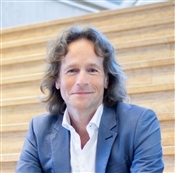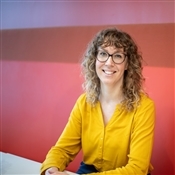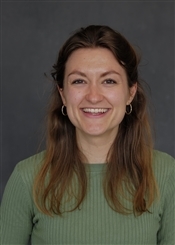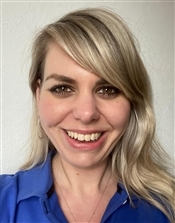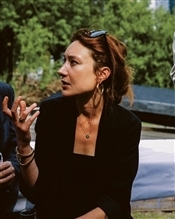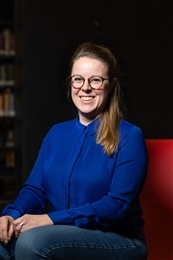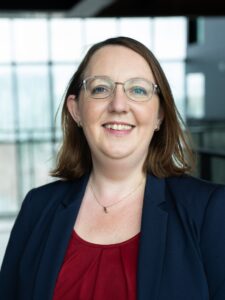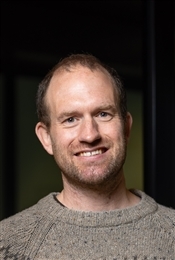From Monday 13 to Thursday 16 October 2025 the FAIR-R and Open Data Week is taking place at the Faculty of Science. An opportunity to connect, learn, and contribute to a culture of FAIR-R (Findable, Accessible, Interoperable, Reusable, and Responsible) and OPEN data!
You are welcome to sign on diverse activities. Join us in interesting knowledge sessions and hands-on workshops to improve your digital skills, come discuss data challenges with the faculty community or participate on the first UU Reproducibility Hackathon.
Utrecht Digital Competence Center – Faculty of Science Hub
How reproducible is your research? Join the faculty community and learn reproducibility in practice! During a ReproHack, participants attempt to reproduce published research of their choice from a list of proposed papers with publicly available associated code and data. You can participate as part of a hacking team or propose your own paper to be hacked! Read more about this event in the webpage of the ReproHack. Dr. Aletta Smits, MSc. Elian Schure, UDCC- Science Hub Community building event: The faculty data manager and data manager referents from departments/divisions get together to discuss shared challenges, exchange knowledge and provide input for the new update to the faculty DM Guideline/Policy. Albert Meijer is a full professor of public innovation at the UU and chair of the Public Management Group. He is a well-known expert in public administration in an information age and co-author of the Open Letter to the Executive University Board of Utrecht University calling for a transformation to digital autonomy. Tim van Neerbos is lead Enterprise Architect and lead of the Enterprise Architecture Board at Utrecht University. As referent for the UU Digitalisation Strategy, he is coordinating the UU Roadmap towards Digital Autonomy. Iris Muis is an expert with over 10 years of experience in responsible AI and ethical data governance. She has co-developed the Data Ethics Decision Aid (DEDA) and the Fundamental Rights and Algorithms Impact Assessment (FRAIA), and is listed as one of the 100 Brilliant Women in AI Ethics 2025. Slinger Jansen is an associate professor at Utrecht University, where he leads the Software Ecosystems Security research group. He is one of the leading researchers in the domain of software ecosystems and co-author of the Research Software Maturity Model (RSMM). Deekshitha has obtained her MSc in Computer Science, and is specialised in AI, software development, Natural Language Processing and Machine Learning Projects. She is completing her PhD at the UU and the eScience Center and is co-author of the Research Software Maturity Model (RSMM). Lourens Bloem is assistant professor Clinical Therapeutics at the Centre for Clinical Therapeutics of the div. of Pharmacoepidemiology and Clinical Pharmacology, within the Utrecht Institute for Pharmaceutical Sciences. He is FAIR Data fellow within the Faculty of Science’s Open Science Team . Sanne Abeln is AI Technology for Life professor at Utrecht University. Her group focuses on developing AI technology to gain understanding of biological systems from high throughput measurements. Ayla Kruis has a background in biology and cognitive neuroscience and currently works as funding advisor for the Faculty of Science. She is involved in several projects helping to shape institutional policy on the topic of GenAI and research. Ralph Meulenbroeks is professor of scientific literacy and chair of the UU’s Freudenthal Institute. He has more than 10 years of experience in the field of science education and has given many keynote and other lectures and workshops on (intrinsic) motivation. Nieske Vergunst is public engagement & science communication consultant at the Faculty of Science. She is focused on setting up and improving public engagement support within the faculty and is part of the Faculty Open Science Team. Elise Heesbeens is Junior Assistant Professor at the Pharmachology division of the UIPS and is actively coordinating sustainability initiatives from the Green Team Pharmaceutical Sciences. Elke Siemens is project manager from Information and Technology Services at Utrecht University and the IT referent of the UU Sustainability Plan for Operations, concerning all IT resources that the university uses to support education, research and support services. Aletta Smits is Associate professor of Human Experience & Media Design at the UU. She is also a Professor of Human-Centered Technology at Hanze University of Applied Sciences. Lea Masse has a background in European Law and in Criminology and is currently working as data manager at the Department of Information and Computing Sciences. Nadine Jetten is Information Specialist from the University Library, acting as a library liaison for the Faculty of Science.
Dr. Annetrude de Mooij-van Malsen Annetrude de Mooij-van Malsen is Information Specialist from the University Library, acting as a library liaison for the Faculty of Science. Sandra Kalsbeek is part of the Education Support team of the University Library. She supports lecturers with publishing open textbooks and using the Easy Access agreement. Ruud Dielen is education specialist within the Utrecht University Library’s Education Support, focused on the topic of open educational resources and open education. Christine Staiger works as Research Engineer in the RE Team of the Utrecht Digital Competence Center – ITS hub. Jelle Treep works as Research Engineer in the RE Team of the Utrecht Digital Competence Center – ITS hub. Elain Schure is a historian of science specialised in philosophy and history of the life sciences. She is conducting her PhD research at the Freudenthal Institute where she combine her interests by studying the concept of race/ ethnicity in microbiome research in South Africa. And more…Monday 13 October
10:00-11:00 Expert Talk: Is Your Research Software Ready for Open Science?
Research today depends heavily on software; for data analysis, simulation, visualization, and more. Yet while FAIR principles have reshaped how we think about data, research software has received far less structured guidance. As a result, many projects struggle with reproducibility, sustainability, licensing, and community engagement.
Join us to learn more about the Research Software Maturity Model (RSMM): a practical framework to help organizations and research teams assess and improve their software practices, considering 17 capabilities and 10 maturity levels across four focus areas: software project management, research software management, community engagement, and software adoptability. In this talk, the model developers will show how RSMM can be applied in practice, including examples of using GitHub data to evaluate maturity.
By adopting RSMM, research software teams gain a clear roadmap for incremental improvement, saving time and resources while increasing reproducibility and impact. Ultimately, RSMM helps bring software closer to the heart of open science!
11:00-12:30 Workshop: Git it going! Mastering Git from zero to hero
Join this workshop and learn how to set-up and use Git to work collaboratively on your projects!
Git is a distributed version control system that is becoming the standard for working with code in research projects. It helps to track changes in code and allows multiple developers to work on the same codebase. GitHub is a web-based platform that provides hosting for Git projects and facilitates collaboration and working on different systems. This makes it a powerful tool: it allows you to work on your code on your local PC as well as on HPC or cloud systems, while the code is always synchronized via the central repository on GitHub.
Examples in this workshop will use GitHub, but if you are using GitLab you are also welcome to join. Do not forget to bring your laptop with Git installed and a GitHub account. See Instructions.
13:00-14:15 Opening of the week & Keynote Panel: Open Science, Research Data and Digital Autonomy
Join the opening of the week with the Faculty Dean Isabel Arends and the dialog about digital autonomy at the UU with special guests Prof. dr. Albert Meijer and Ing. Tim van Neerbos.
14:30-15:30 Expert Talk: AI Ethics – introducing FRAIA and DEDA
Join guest speaker Iris Muis in this interactive and insightful session about the digital ethics and the impact of AI on human rights. She will introduce two hands-on methods for ensuring the ethical development and use of AI and other data projects: the Data Ethics Decision Aid (DEDA) and the Fundamental Rights and Algorithms Impact Assessment (FRAIA). These two best practices have been created by Utrecht University but have been widely adopted by Dutch government and society.
15:00-17:00 Open Helpdesk: BYODC – Bring your own data & code session
Struggling with your research data or software? Wondering what to do with the large amount of data you have collected until now? Are you looking for a suitable digital technology to apply in your research project? Or curious about making your data and software open and FAIR? Experts are here to help you in this Open Helpdesk – Q&A space! Bring your laptop and come join us with your questions about your research data or software. Data consultants and research engineers from the UDCC have expertise in:
Tuesday 14 October
10:00-11:00 Knowledge Session: Pitch Perfect! Open Science and FAIR by design in your project proposals.
11:15-12:15 Workshop:From Chaos to Clarity: organizing your data for reproducibility
Managing research data effectively is essential for collaboration, transparency, and long-term usability. Yet many researchers still struggle with unclear folder structures and inconsistent file naming. In this hands-on workshop, you will learn how to structure your project files in a way that supports both your own workflow and that of your collaborators, and contribute to making your data more FAIR.
Researchers and students are welcome to join. Do not forget to bring your laptop!
13:15 -17:00 Reproducibility Hackathon: Join our first UU ReproHack!
Wednesday 15 October
9:00-10:00 Workshop: Dos and Dont’s of Data Management Plans
During this power session, we will share practical insights and tools to effectively prepare a plan to manage your data throughout the lifecycle of your project. You will learn best practices that will help you enhance data FAIRness (Findable, Accessible, Interoperable, and Reusable) and boost your research efficiency.
10:00-11:00 Panel – Privacy, Data and AI: Rough waters, strong currents – navigating the challenges of the digital future.
The use of AI raises big challenges. Join this interactive panel discussion with experts on technology in education and research, where we will explore together the future of our faculty. Ayla Kruis, Sanne Abeln and Ralph Meulenbroeks together with panel host Frans Huigen in navigating the digital current of data protection and privacy issues in AI.
11:15-12:15 Workshop: Data without names: Introduction to Data De-identification.
In this hands-on workshop, we will explore the fundamentals of data de-identification and discuss various techniques to protect data subjects’ privacy while preserving data integrity and utility. Following a presentation on these methods, participants will have the opportunity to apply what they’ve learned to their own data. The workshop bridges theory and practice, preparing researchers to navigate data privacy challenges responsibly and ethically.
13:00-14:00 Workshop:Crash Course: Open Educational Resources.
Wondering about Open Education and whether FAIR also applies to Educational Materials? Teachers and educational staff are welcome to join this Crash Course in Open Educational Resources (OER)!
OER are teaching materials that are shared online, and accessible for all. In this workshop, we explore why and how to develop these types of materials. After this workshop, you are familiar with examples of OER and you will know how to find them. Even more, you will also know how to share materials yourself.
14:00-15:00 Forum: Qualitative Data FAIRness: Challenges and Tools for data Sharing and Reuse.
15:00-17:00 Workshop: In between the lines: writing code for your future self.
Do you sometimes read some lines of code from a colleague and you are struggling to make sense out of it? Or even lines of your own code from some time ago? Join this interactive workshop and take home useful techniques to write clear code, understandable by your future self or your colleagues and crucial to make your research results reproducible. We will touch upon project and code documentation, dealing with dependencies and licensing.This workshop is aimed at participants with intermediate knowledge of programming. The concepts covered in the workshop can be applied to most programming languages, though we primarily address R and Python in terms of examples and tools. Do not forget to bring your laptop! Bring also a project to work on during the workshop -this does not need to be a complex project; even one script (and some associated data) will be sufficient, as long as there is room for reworking and improvement.
Thursday 16 October
10:00-11:00 Panel: Funding and Collaboration Opportunities in Open Science & FAIR Data/Software
11:15-12:15 Knowledge Session: Open data vs. misinformation: Sharing research in a post-truth world.
Can open data help combat misinformation, or does it risk fueling it? In this interactive session, we’ll explore how FAIR and open data practices intersect with science communication and public engagement, and how researchers can responsibly share their work to support public understanding rather than confusion.
Researchers and students interested in public engagement and science communication, science communication professionals, and anyone else concerned with responsible use and interpretation of data are invited to join.
12:30-13:30 Network lunch: Faculty Data Management Community.
14:00-15:00 Forum:Digital sustainability in action: towards greener research data management and compute.
Computing and data handling are essential in modern research, and this comes with significant, though not always well-understood, environmental impacts. Join Elke Siemens, UU-ITS sustainability referent, and Elise Heesbeen from our Pharmaceutical Sciences Green Team to discuss how we can make our research more sustainable and hear more about ongoing initiatives from our research groups.
15:00-16:00 Workshop: From the lab to the world: Open Access Journals and FAIR Data publication.
Join us in this workshop and learn all secrets about how to publish your research Open Access and how to publish your data FAIRly! By the end of the workshop, you will know what to consider when publishing an article OA and how to publish your research data, including how to deal with restrictions on data publishing and how to understand and comply with external requirements.
16:00-17:00 Knowledge session: How to FAIRify your data – Metadata 101: what, why and how.
Join us in this power session, unlock the power of metadata and improve your FAIR skills!
What is data without context? In this beginner-friendly session we’ll unpack what metadata is and what is the best way to document your research. You’ll leave with practical tips to quickly apply back at the lab. Researchers and students are welcome to join. Do not forget to bring your laptop!
